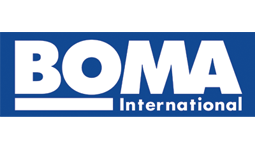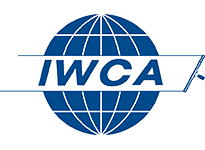Salt Eats Cars & Concrete: Parking Garage & Concrete Cleaning Is Critical
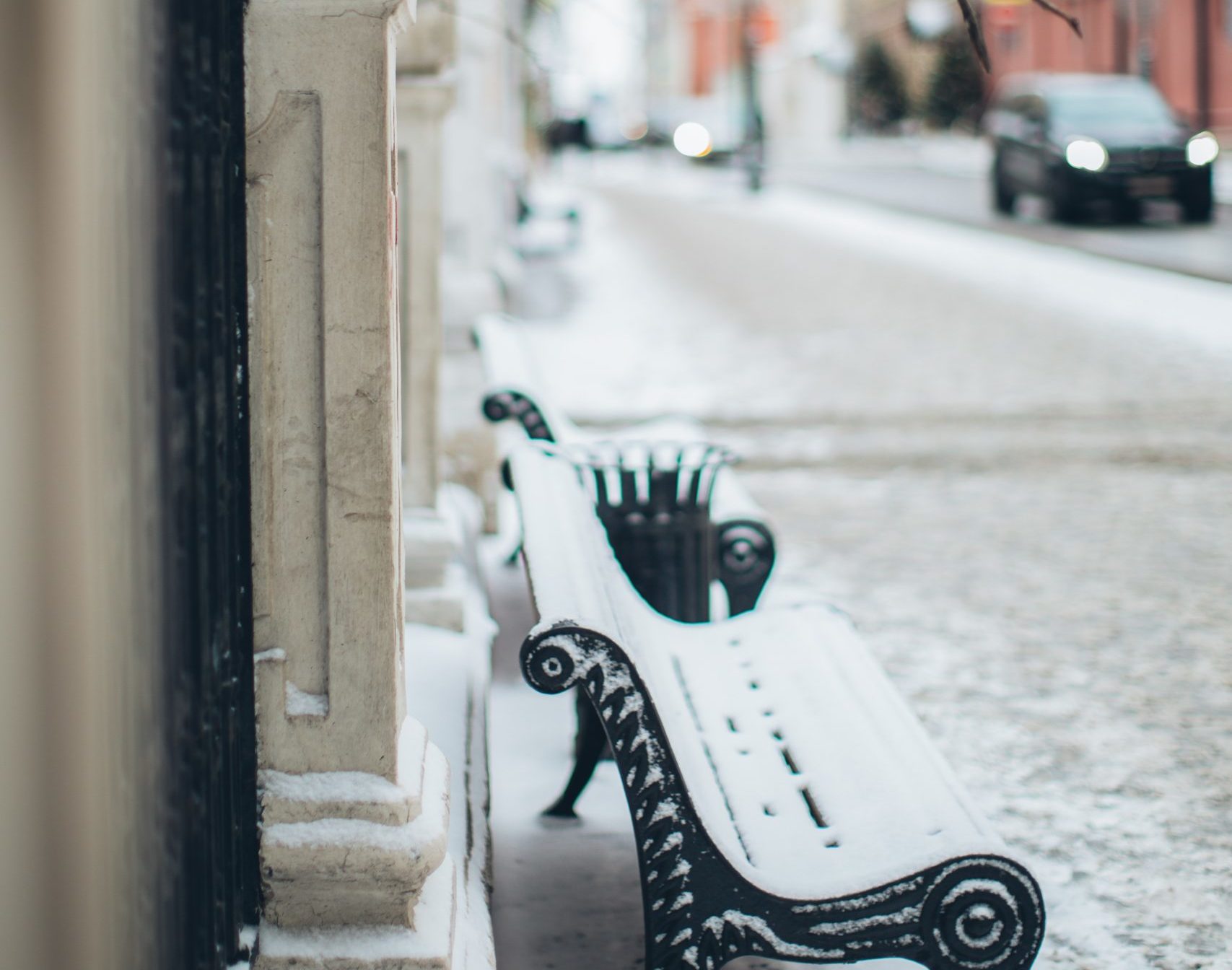
Winter plays a big role in the lives of most people on the East Coast and beyond, with many parts of the country dealing with huge snowfalls and treacherous ice storms.
Offices are back in business, and it’s up to property managers and building owners to keep up with the building maintenance. Salt and brine are the two leading methods of preparing for a winter storm, but they also eat cars and concrete.
Keep reading to learn what property managers and building owners can do to prevent property damage, why maintenance is so important, and what to pay attention to when addressing maintenance concerns.
How Often Should I Clean My Parking Garage & Why?
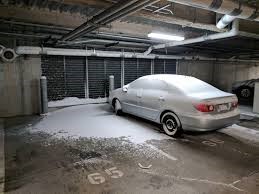
The timing of certain building maintenance items is critical for the upkeep, and in winter, the most critical thing on the maintenance list is parking garage cleaning.
Depending on where in the country your property is, the likelihood of a snow and ice storm can be significant. Because snow and ice bring a tremendous amount of salt and dirt into a parking garage, it’s important to have your parking garage cleaned throughout the winter to prevent damage to the garage itself and even to your building.
If the salt and sand are in your garages, they will be tracked into your buildings, resulting in interior damage. It’s generally best to have your parking garages deep cleaned at least once every six to 12 months.
Is Salt Bad for Cars & Concrete?
Salt is highly corrosive and can destroy the paint on cars. Salt eats not only through vehicle paint over time but, if left unattended, the undercarriage of cars could eventually rust out.
Salt is equally bad for concrete surfaces, too. If left on concrete surfaces such as your garage floors, over time, the salt and brine used to combat snow and ice can seep through garage floor joints and start to eat away at the concrete.
In addition, with the freeze-thaw cycle, the concrete will begin a slow decay. That’s why it is imperative to clean parking garages.
The salt and brine applied to roads and parking garages are extremely corrosive to concrete surfaces and garage floor membranes. Cleaning the parking garages and parking lots is the best insurance policy against costly repairs to either surface. Parking garage coating manufacturers even require cleaning to avoid voiding warranties.
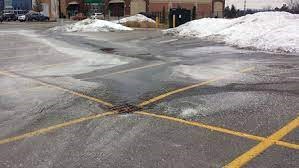
It’s recommended that managers and owners check their warranties to ensure they remain compliant, as repairs to garage floors can be extremely costly.
Property managers and building owners need to anticipate that all the salt and sand will eventually end up in their office buildings as well. If that happens, and it will, the salt and sand will destroy floors, including tile, marble, wood, and carpet in the buildings and elevators.
That’s why it’s wise for property managers and building owners to have their parking garages cleaned in winter.
What Else Can I Do To Protect My Property?
Another maintenance item to consider when cleaning parking garages and parking lots is pressure cleaning sidewalks, building façades, and pad sites. Deicers, salt, sand, and various chemicals are frequently used in these areas during winter, and they can damage the surface where they’re applied.
Not only can any of these substances be dragged inside a garage or parking area and then into the office building to destroy floors, but concrete sidewalks and façades can also be damaged.
Window mullions are also frequently overlooked. When pressure cleaning is done to clean off deicers, salt, sand, and other chemicals, the splatter occasionally gets on the window mullions and can erode the metal if not properly cleaned.
Keep Your Parking Garages, Parking Lots & Concrete Surfaces Clean
From the above examples, it’s easy to see why it’s important to clean exterior surfaces such as parking garages, parking lots, and concrete in the winter. Along with creating great curb appeal and having a strong visual return on investment, parking garage cleaning and pressure cleaning can keep interior surfaces such as floors and carpets clean and damage-free.
From parking garage floors to sidewalks and more, concrete surfaces will also benefit from regular cleaning and maintenance. Regular preventative maintenance is key, from the surface membranes being stressed by salt and brine to so much more.
Never forget to maintain your parking garages, parking lots, sidewalks, pad sites, building façades, and other concrete surfaces. It’s guaranteed to be maintenance dollars well spent.





